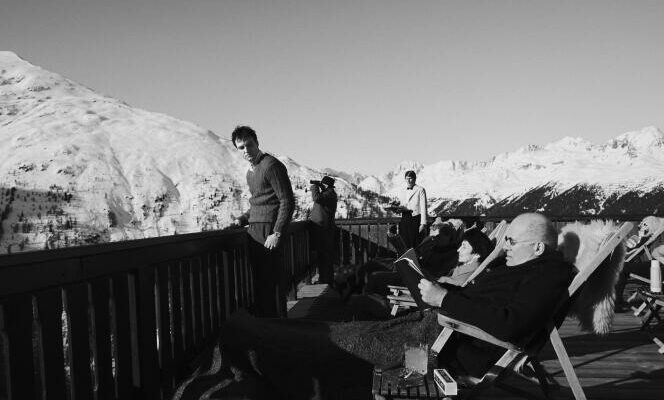THE “WORLD’S” OPINION – NOT TO BE MISSED
This is a film which does not lack ambition and which, on its scale, even demonstrates a certain excess. However, it is “only” a second feature film, signed by a certain Timm Kröger, a 38-year-old director who, until now, has mainly worked as a cinematographer. Presented in competition at the Venice Film Festival in 2023, Universal Theory is indeed interested in what is secretly at stake between science and fiction. Two terms that we have become accustomed to putting together without always clearly detecting what they cover: a fertile ground for speculation, capable of opening wide the doors of the imagination.
The film thus offers itself as an original variation on the multiverse, a fashionable notion derived from quantum physics, which the great Hollywood spectacle has recently made its theoretical toy, to infinitely recycle heroes and scenarios. Kröger proceeds differently, going back to the fantastical sources of the idea in the 1960s, an era of the Cold War and atomism, but also a bygone age of cinema.
In 1962, in a large hotel in the Swiss Alps, lost in the snowy heights, a scientific conference was organized which brought together the best of physicists. All are invited by an eminent Iranian colleague planning to present a revolutionary “Theory of Everything” (The Theory of Allem is the original title of the film). An obsessive and shy young student, Johannes Leinert (Jan Bülow) gets to go there under the guidance of his thesis director, who is skeptical of his research on a “universal wave function” supposed to prove the existence of parallel worlds.
Cold War climate
There, nothing goes as planned. The symposium, in the absence of its instigator, is suspended before it has even started, the hotel resembles a nest of spies and former Nazis, and strange climatic phenomena occur. Johannes falls in love with Karin (Olivia Ross), a furtive pianist with a troubled identity who seems to know everything about his past, and even his future. He discovers a network of strange galleries dug under the mountain, a uranium deposit and a place of secrets.
Something went wrong in the destiny of the world that year, a glitch occurred in the web of time, and Universal Theory imagine unearthing its intimate origin. The film is striking in its way of rediscovering the climate of the Cold War: less through traditional reconstruction than by restoring the pictorial texture of the era. The black and white image therefore reconnects with the anguished meanders of post-expressionism, that of the films of Orson Welles, Fritz Lang or Alfred Hitchcock.
You have 44.88% of this article left to read. The rest is reserved for subscribers.
